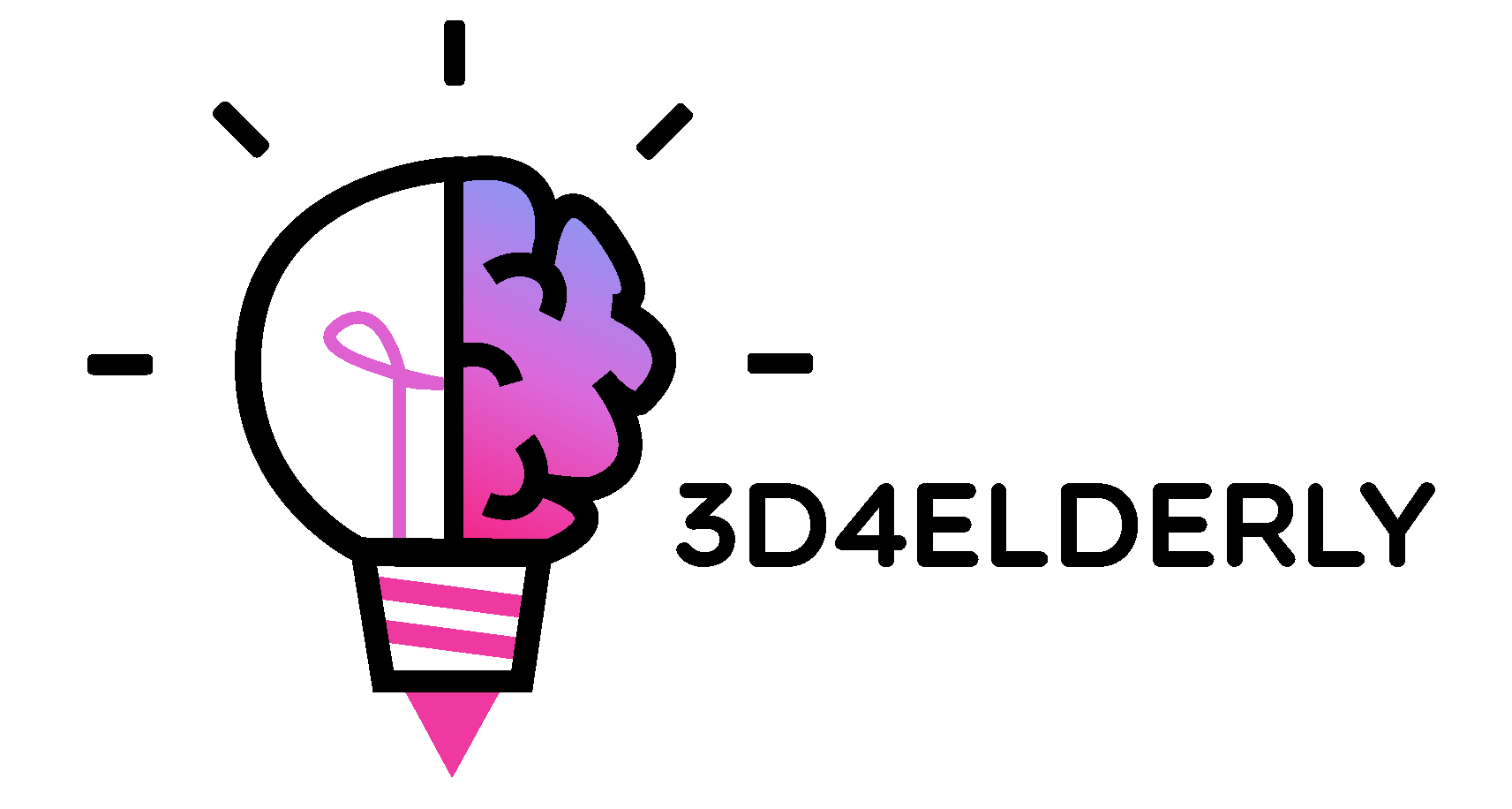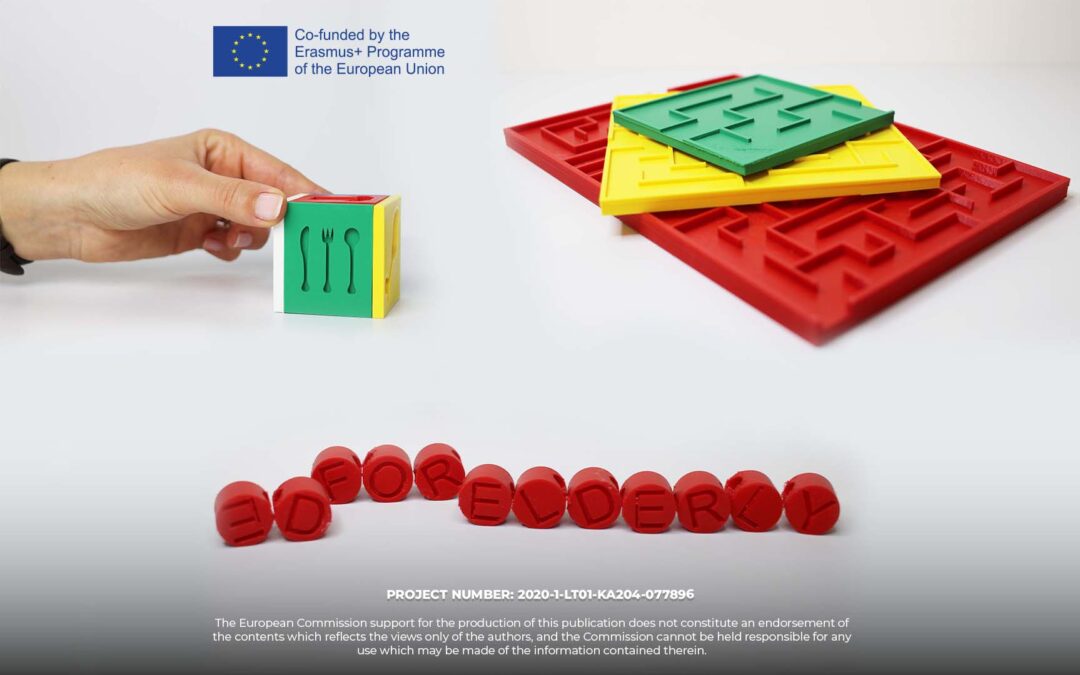The consortium of 3d4elderly is happy to announce that the 3D exercises are now available in all four languages of the consortium: Italian, Spanish, Bulgarian and Polish, and also in English. The set of exercises is developed by 3D printing technology suitable to use with elderly people with Alzheimer and dementia.
The project aims to create innovative learning pathways that increase the quality of the work of caregivers and staff members dealing with people with Alzheimer and elderly people with dementia and also to raise the quality of the life of the patients by using 3D technology.
Alzheimer is a degenerative neurological disease that affects the brain, progressively leading the patient to a state of total dependence, thus creating a very complex and difficult situation for people who take care of them. The causes of the disease are still unknown but there is a multi-factorial origin connected to various factors such as genetics, environment and lifestyle.
In particular, CEIPES and all partners developed 15 exercises as 3D model with their .stl files. Who wants to use them, just need to download the folder from the platform, then generate the g.code to insert it into the 3D printer. The 3D exercises have different objectives and shapes, but they all have in common the goal of helping elderly people with dementia and a first stage of Alzheimer in their daily routine. Indeed, it will help them with cognitive stimulation exercises that stimulate memories, language, perceptions, reasoning, creativity, sociability and above all well-being. All exercises have been designed according to the methodology developed by the partners experienced in degenerative neurological disease.
In the following link you can go to the 3D4ELDERLY PLATFORM. It is possible to access to the exercises in five different languages. You can choose the exercise based on what cognitive development you want to train the elderly person. Also, through the platform you can get the stl file, it is necessary to give directions to your 3D printing. If you do not have easy access to a 3D printing, on the platform in the “network” section, you can directly contact companies close to you in your city, who will print the exercise for you.
In conclusion, the project partners are working on the development of a methodology to test all the exercises and then improve them, to be sure of having an excellent result at the end of the project.
Keep follow our social media accounts on Facebook, Instagram and Twitter.

